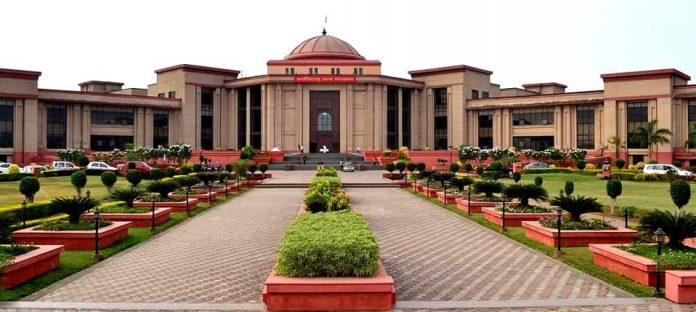The Chhattisgarh High Court dismissed a Public Interest Litigation (PIL) filed seeking direction to the respondent authorities to take proper legal action against the private respondents and also against the responsible revenue officers, who have wrongly given help to the private respondents in commission of forgery in respect of government land.
Shikhar Sharma, counsel appearing for the petitioner submitted that the present petition is filed as a public interest litigation, indicating that the petitioner is a public-spirited person and not motivated by personal interests. He submitted that the petitioner resides in the village Lahroud, Tahsil Pithora, District Mahasamund. According to him, there is government land registered under the designation of “Bade Jhad Ka Jungle,” with an area of 4.86 hectares. This land has been recorded as “Bade Jhad Ka Jungle” in the Missal record of 1986-1987. The petitioner has provided a copy of the Missal record from the year 1989-90 pertaining to the land.
It is submitted that the private respondent No. 7 obtained the land ownership document in his favour and later on, sold it to respondent No.6. The petitioner seeks legal action to address this encroachment and protect the government land. He would further submit that the petitioner has not filed any previous public interest petitions related to this matter. This suggests that the present petition is his first attempt to address the issues surrounding the encroachment, forgery, illegal acquisition of land, and fraudulent transactions.
In the matter at hand, the Division Bench of Chief Justice Ramesh Sinha and Justice Rakesh Mohan Pandey is of the view that the petitioner has appropriate course of action under Section 248 of the Land Revenue Code to address the encroachment upon government land, and the petitioner instead of pursuing the prescribed legal proceedings before the revenue court, he has chosen to initiate a public interest litigation (PIL).
Therefore, at this stage, the Court could not issue a writ to undertake fact-finding or conduct an inquiry into the identity of the encroachers or the extent of the encroachment, as this issue falls within the jurisdiction of the revenue authority, as stipulated by Section 248 of the Land Revenue Code. Consequently, the bench found no good ground to entertain the petition at the preliminary stage, hence the PIL was dismissed.


